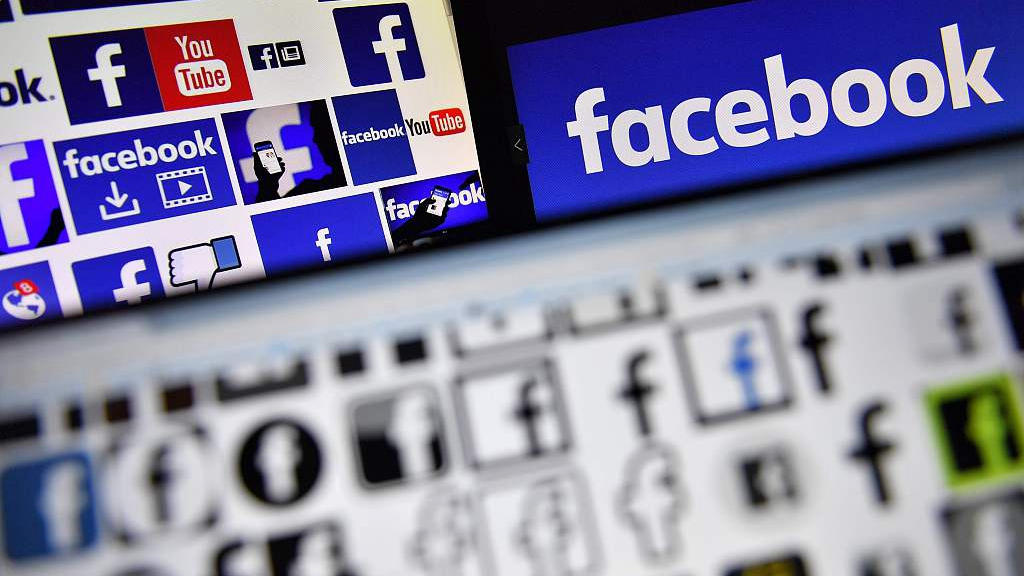
Editor's note: Bradley Blankenship is a Prague-based American journalist, political analyst and freelance reporter. The article reflects the author's opinions and not necessarily the views of CGTN.
Over the past several years, the power of Big Tech companies has started to come to light in Western media through news reports, books and documentaries. So large has these companies' power become, in fact, that it is now one of the defining political issues of our time cited by world leaders and was famously described by author Shoshana Zuboff as the "fight for a human future."
That's largely because political polarization and unabated misinformation, especially regarding the ongoing COVID-19 pandemic, are all amplified by algorithms run by these large tech companies. But it's also because some companies don't just collect data on human behavior, but actively steer and manipulate it – often in ways that work against the interests of organized, civil society.
China remains a clear exception to this rule, owing to the fact that Chinese regulators have long been aware of the potentially disastrous effects of such companies.
Just days ago, China's cyberspace watchdog, the Cyberspace Administration of China (CAC), published a set of draft regulations for recommendation algorithms that are undoubtedly the most progressive of their kind.
Under these regulations, for example, users would need to be provided with a convenient way to see and delete keywords that algorithms use to profile them. There would also be strict limits on the kinds of keywords that providers could use, and users would need to be explicitly informed that algorithms are being used to recommend content or products. Users will also have the ability to opt out.
The regulations also focus on making sure that algorithms don't damage civil society by inducing consumer behaviors that promote overconsumption, promoting monopolistic behavior, pushing inappropriate or dangerous content onto kids, fostering discrimination or setting unfair working conditions for workers such as ride-hailing or delivery drivers.
Western media reports on this and other tech-related regulations in China, such as recent anti-monopoly legislation, have centered on what they describe as a "crackdown" that is "threatening" investors. Journalists and other commentators in some countries are rattling off criticism without appreciating how objectively positive these regulations are and how badly their own countries need something similar.
The regulations presented by the CAC are not some kind of authoritarian takeover but are, I would argue, actually the exact opposite. That's because they take power (literally the power to induce behavior without consent) away from tech companies run by a small group of unelected people, which has demonstrably led to political turmoil in many countries around the world.
To name just one obvious example, the United States. Social media companies in the country profit from misinformation by designing algorithms that pump this bias-confirming content sans facts directly to users. The problem is that this creates hermetically sealed echo chambers that fuel political polarization.
Perhaps the greatest example of this came on January 6, when rioters fueled by social media-driven fake news and conspiracy theories stormed the U.S. Capitol in what was a clear attempt to overturn an election.

Logos of online social media and social networking service Facebook. /VCG
Logos of online social media and social networking service Facebook. /VCG
Of course, the United States is not alone in this dilemma since other liberal democracies are also under such strain. European Commission President Ursula von der Leyen issued a stern warning during her speech to Davos Agenda Week this year, saying that it's not merely individuals like former U.S. President Donald Trump that are fueling polarization but actually the fact that tech companies are profiting from divisive and dangerous content.
In light of this, the EU, which already enshrined the "gold standard" of personal protection through the General Data Protection Regulation (GDPR), unveiled two sets of sweeping proposals that threaten Big Tech companies with hefty fines for anti-competitive behavior or failure to regulate illegal content.
One of them, the Digital Services Act (DSA), gives the EU the power to fine companies up to 6 percent of their global revenue for failing to remove illegal content such as "hate speech, terrorism, child pornography or the sale of illegal or counterfeit products."
But even these regulations don't even seem to scratch the surface of the new regulations taking place in China, which is why I think it's safe to say that China's handling of Big Tech may be the new gold standard.
That's because regulating the algorithms themselves – not simply personal data – is exactly the kind of systemic-level overhaul that is needed. Without this, governments will just be playing catch-up with tech companies as they continue to find new frontiers to exploit users.
Also consider this: Making sure that users are not only informed about them but also able to influence their own profile themselves is an extraordinarily democratizing policy. Regulators across the world, especially those that care about democracy and the rule of law, should be taking notes from Beijing on this important issue.
(If you want to contribute and have specific expertise, please contact us at opinions@cgtn.com.)

